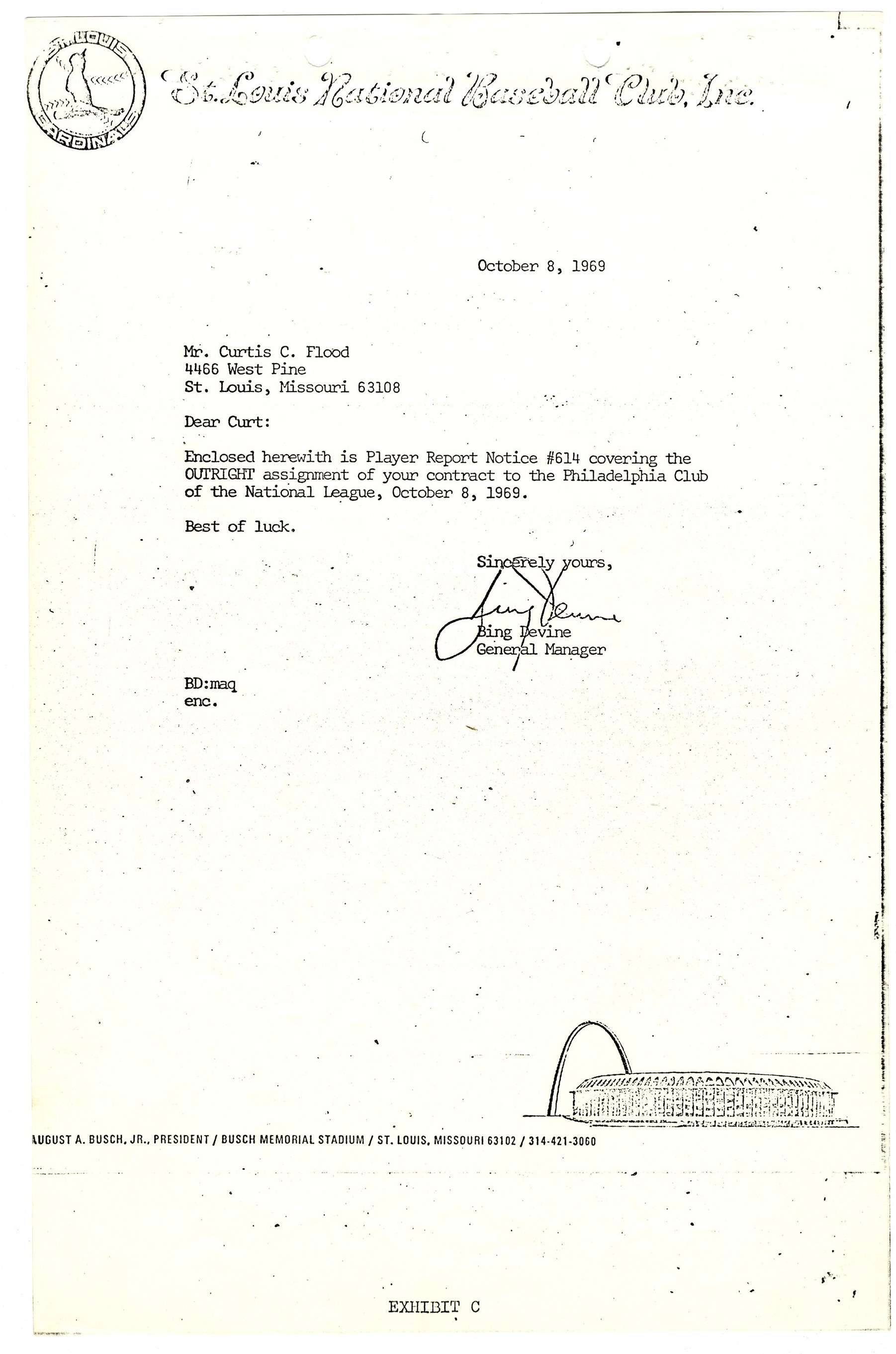Letter to Curtis C. Flood from Bing Devine about Transfer of Contract
10/8/1969
Add to Favorites:
Add all page(s) of this document to activity:

This document was filed in the case of Curtis C. Flood, Plaintiff, vs. Bowie K. Kuhn, et al. (Bowie K. Kuhn, Commissioner of Baseball; Charles S. Feeney, President of the National League; Joseph E. Cronin, President of the American League; and 24 professional baseball teams).
"After twelve years in the Major League, I do not feel that I am a piece of property to be bought and sold irrespective of my wishes." Curt Flood wrote those words in a letter to Baseball Commissioner Bowie Kuhn in October 1969 after being traded from the St. Louis Cardinals to the Philadelphia Phillies.
At the time, baseball owners were able to exert great control over players and their careers. They did so primarily through the contract reserve clause. Dating back to the 1880s, the reserve clause guaranteed the team that first signed a player "the rights" to that player until he was traded or retired. Initially created to stabilize and professionalize the game, the reserve clause kept players' salaries in check and ensured owners a sense of financial stability in the game.
Several players, including Flood, filed lawsuits challenging the reserve clause on antitrust grounds and looked to the courts for justice without success. Eventually in 1975, the reserve clause was struck down and free agency was established. The economic structure of the game changed, and players' salaries skyrocketed in the ensuing years.
"After twelve years in the Major League, I do not feel that I am a piece of property to be bought and sold irrespective of my wishes." Curt Flood wrote those words in a letter to Baseball Commissioner Bowie Kuhn in October 1969 after being traded from the St. Louis Cardinals to the Philadelphia Phillies.
At the time, baseball owners were able to exert great control over players and their careers. They did so primarily through the contract reserve clause. Dating back to the 1880s, the reserve clause guaranteed the team that first signed a player "the rights" to that player until he was traded or retired. Initially created to stabilize and professionalize the game, the reserve clause kept players' salaries in check and ensured owners a sense of financial stability in the game.
Several players, including Flood, filed lawsuits challenging the reserve clause on antitrust grounds and looked to the courts for justice without success. Eventually in 1975, the reserve clause was struck down and free agency was established. The economic structure of the game changed, and players' salaries skyrocketed in the ensuing years.
This primary source comes from the Records of District Courts of the United States.
National Archives Identifier: 278311
Full Citation: Letter to Curtis C. Flood from Bing Devine about Transfer of Contract; 10/8/1969; Curtis C. Flood vs. Bowie K. Kuhn, et. al.; Civil Case Files, 1938 - 1995; Records of District Courts of the United States, Record Group 21; National Archives at New York City, New York, NY. [Online Version, https://www.docsteach.org/documents/document/letter-curtis-flood-from-bing-devine, April 25, 2024]Rights: Public Domain, Free of Known Copyright Restrictions. Learn more on our privacy and legal page.



